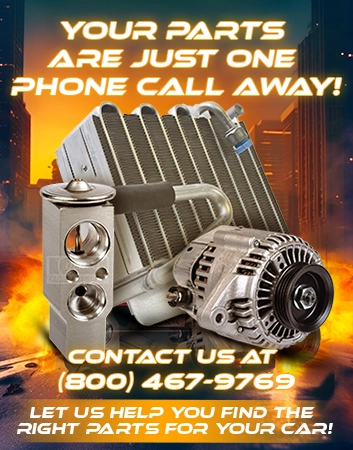After 9,000 miles, most oils give up the ghost. Even the best synthetics rarely make it to their service interval in good shape, and because there’s nothing like a good oil conversation on the internet, let’s begin! Now, it’s science, but not really. The engine that this oil went into had 181,000 miles on it, and was coming off another Bizol oil change after around 5,000 miles. I believe that was the 0w/40 Protect. On this sample, a quart of oil was added at around 4,500 miles to top up. The driving style was slightly heavy footed, but we’re not talking track days here. Groggy commuting mixed with some extended day trips, mostly. Only about once a day the tach needle would see more than 4,000 on the dial. The PCV system has not been replaced in awhile and will be addressed during this change. So enough about the car, lets get to the Bizol Test. The specific kit I used is 101K10216, which comes with the oversized K&N oil filter.
Starting off we have the unused, fresh out of the bottle test of the Bizol 5w40 Technology. Here’s what Blackstone Labs had to say about it:
Technology 5W/40 Virgin Sample – Bizol Test Results
“This is a clean and dry sample of Bizol Tech. The viscosity is in the appropriate range for 5w/40 oil, and no moisture or solid material is present. This blend uses calcium and boron as a detergent/dispersant additives. Phosphorus and zinc serve as anti-wear additives. Traces of iron and lead are present but that’s actually normal for a virgin oil, and won’t cause any harm. The TBN is starting off strong at 8.7, showing lots of active additive present. ” -Blackstone Laboratories

That’s all well and good, it has a strong TBN. That’s total base number and is an indication of resistance to acidity, which is no friend to your engine internals. You can see the numbers for the additives as they described, with calcium, boron, phosporous, and zinc added. Each element is a specific component of Bizol’s special additive package, it almost feels dirty to reveal them here. Anyway after about 6 months and 8,965 miles, lets get to the real meat of this Bizol test.
Technology 5W/40 after 9,000 miles – Bizol Test Results
“This is a great first report for your Saab! Universal averages are the basis for comparison until your own averages are built up, and these averages are based off a much shorter run of ~4,600 miles. Wear metals from your engine are nice and low in comparison (after nearly twice as long on the oil), showing an engine that is wearing very well for the type. The viscosity did thin a bit, reading in the 5w/30 range, but that’s okay. there wasn’t any harmful contamination present to cause that, and by itself, a thin viscosity is harmless. The TBN is strong (1.0 is low). Try 11k mi.” -Blackstone Laboratories

Admittedly, this is even better than I was expecting. I didn’t go this long on purpose, this was just life getting in the way, but with this report I feel confident on extending my oil changes with Bizol and not pouring good oil into the drain pan. The total base number is in good shape, well above the minimum of 1.0, and the additive package is holding up perfectly fine. You can see the calcium, phosphorus, and zinc levels are nearly the same. the boron level has dropped slightly, but is still holding tight at 28. The one strange thing we noticed is the level of molybdenum is elevated in the used oil, while not present in the fresh, BSL suggests this is residual from a previous oil change or additive. That has been confirmed by Bizol, that the tech has not been reformulated. Talk to you next time, when I’ll be sailing past the 200k mile mark in my 4cylinder turbo Saab with another long run on some Bizol Technology 5w/40.




I have used Amsoil oil since the early 80’s I believe and I am really happy with it. Admittedly I have not done any lab tests on the before and after. I find there is no problem finding dealers in any areas and the prices for the oil rated to something like 40,000 miles is changed every 10K kilometers (6250 Miles).
Initially I went to synthetics for cold weather starting. I live up in canada and if you car is left out in -30 degrees and you go back to it with regular old, it will hardly crank over but the synthetic allowed it to spin much faster which is usually the problem with starting. If you cannot hit at least 500 RPM while cranking the engine cannot fire and stay running. It does not matter how much battery capacity you have, if you cannot hit that 500 RPM mark you car is not going to start and keep running.
WIth that said, I agree that Mobile 1 may be easier to find and is a good oil. They do not have a specific European blend like amsoil does and I think there are a few additives like Nickel or Zinc of something which is typically much higher in a Euro oil over north american oils. Whether that is an issue is up for debate.
What would be nice is to see this Bizoil, Mobil, Amsoil etc all tested before and after a 10K run so there is some basis to say one is better than another, or they are pretty much the same but the prices are different.
Hey Alex, thanks for the input! We would love to do a side by side comparison, it’s tricky to do so and keep all the parameters the same. Ideally you’d need three brand new identical cars following each other around everywhere in order to get a true side by side comparison. However, we’re up for anything. Some 5W/40 Protect (instead of technology) coming out of a good condition BMW Z4 in the upcoming months, something to look out for.